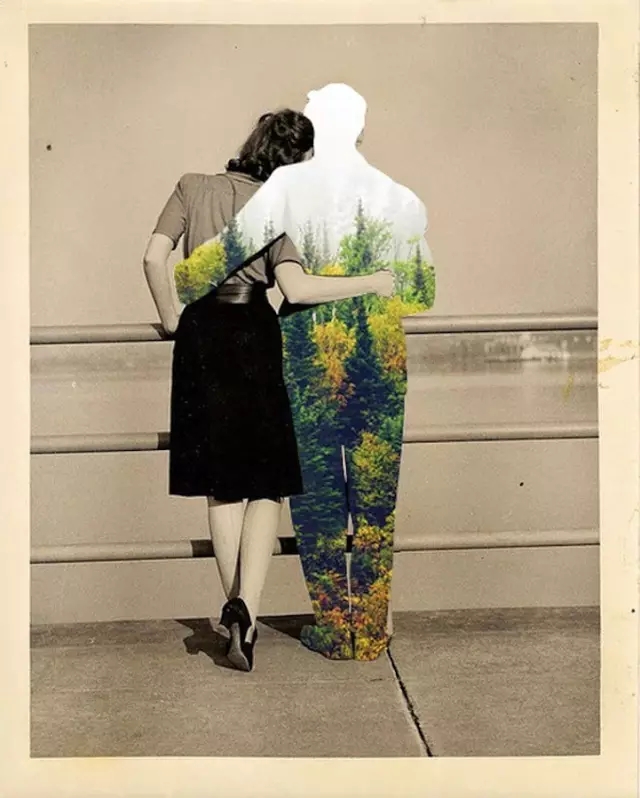
从那之后
我现在对你是什么,
当你对我来说已经不是从前的你?
我们对于彼此是什么,
当“我们”已经不复存在?
“我们”已经分裂成“你”和“我”
我们已经不是一体,而是两个分离的人,
不再有关,除了那个缀在词汇前面的
“前”字,那曾经被用来指代我,
指代你,却很少被用到的词汇(丈夫、妻子)
当我们曾经摆好姿态(如此年轻而又无助)
用我们的(你的,我的)手握紧那把刀子,
让它沉入那高高的白白的蛋糕。
所有的那些甜蜜,一层的某种物质,
然后是另一种东西,然后又是那种,那种最初的物质。
作者 / [美国] 乔伊丝·苏特芬
翻译 / 光诸
Ever After
What am I to you now that you are no
longer what you used to be to me?
Who are we to each other now that
there is no us, now that what we once
were is divided into me and you
who are not one but two separate and
unrelated persons except for that ex-
that goes in front of the words
that used to mean me, used to mean
you, words we rarely used (husband, wife)
as when we once posed (so young and helpless)
with our hands (yours, mine) clasped on the knife
that was sinking into the tall white cake.
All that sweetness, the layers of one thing
and then another, and then one thing again.
Joyce Sutphen b. 1949
连续两个周一介绍了关于“文艺”人士的日常生活的诗,都有点甜蜜,有点不堪。第一首写单身生活,第二首写爱情,今天这首是关于很文艺的离婚。“读睡”曾经介绍过本诗作者乔伊丝·苏特芬(Joyce Sutphen)的另一首诗《在那个时刻》(At the Moment),名字都很像和这首诗一个系列。苏特芬的诗大多是用相当传统的方式描绘日常生活。相比《在那个时刻》,《从那以后》更接近于当代美国诗歌最常见的类型——用白描的细节让读者和作者一起体会人生的一段经历。
这首诗虽然很短,但是并不欠缺写作技巧和层次感。在开始的关于“称谓”的心理活动描写之后,突然写两个人的手握紧一把刀,读者不禁心头一紧。然后锋回路转,读者发现原来两个人是在婚礼上切蛋糕。而切蛋糕分明也是一种隐喻——两个人一起亲手把“一”变成了“二”,而回忆这个过程,正像刀子深入厚厚的蛋糕,有一层,又一层的滋味。
文艺的人生就是这样,把错误总是能够写成诗。但是当初的错误也正是和文艺相关的年轻和无助,有诗的人生往往目光迷离。
荐诗 / 光诸
2015/10/12
题图 / POGO, The butterfly effect
Published 2015/10/12
Last updated: 2015/10/13

近期评论